There were not very many issues when it came to the Minnesota Wild, but the main storyline over the course of the 2019-20 season was the fact that the team had poor goaltending. Actually, it was the worst in the NHL and prevented the Wild from making any run towards a top-three spot in the division, which would have meant an automatic entrance to the Stanley Cup playoffs.
Before we discuss goaltending or in better terms, lack of goaltending, let’s review the Wild’s 2019-20 regular season.
Related: Revisiting the Brent Burns Trade
The Wild had one of the worst starts in franchise history this season, but the veteran-equipped team was far from rusty. The team made an incredible turnaround this season that featured the emergence of Carson Soucy, a Kevin Fiala breakout and the solid GEEK line (Jordan Greenway, Joel Eriksson Ek, and Luke Kunin). Because of these factors, the Wild were inevitably rewarded with a qualifying round playoff spot.
There is no doubt that this younger club — the youngest Wild team in years — was a huge contributor to keeping them in the mix this season. But the veterans were still impactful and supported this younger core.
The Wild dealt with an abundance of adversity throughout this season. The struggles in the first third of the campaign were evident with players like Fiala unable to find their game that was once displayed in the 2017-18 season. Remember, Fiala was described as a “game-breaker” by former general manager Paul Fenton, who shipped Mikael Granlund to Nashville in the one-for-one transaction that likely built up a lot of pressure on Fiala in Minnesota.
Even once the Wild were able to bring their game to the next level, courtesy of a Fiala breakout, a mid-season coaching change still occurred. Regardless of whether it was beneficial or not, the firing of Bruce Boudreau during a playoff push was not only weird timing, but somewhat puzzling. The Wild went 8-4 under Dean Evason who was just named the fifth head coach in Wild history. It is hard to measure whether the success under Evason can be attributed to the coaching change or not.
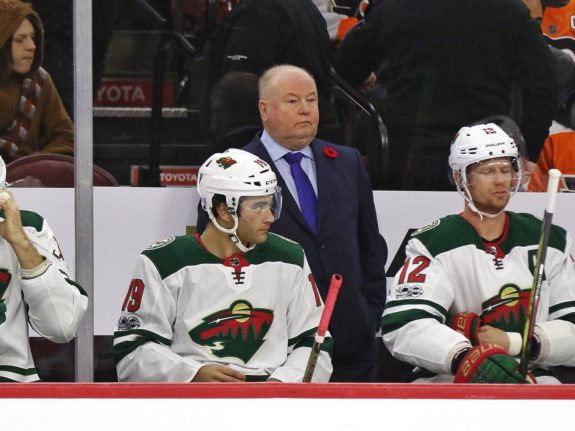
The Wild then traded veteran winger Jason Zucker to the Pittsburgh Penguins in exchange for highly touted defensive prospect Calen Addison, former 30-goal scorer Alex Galchenyuk and a first-round pick in one of the deepest drafts in years. It was a great move by first-year GM Bill Guerin who got what could be seen as a massive return in the future.
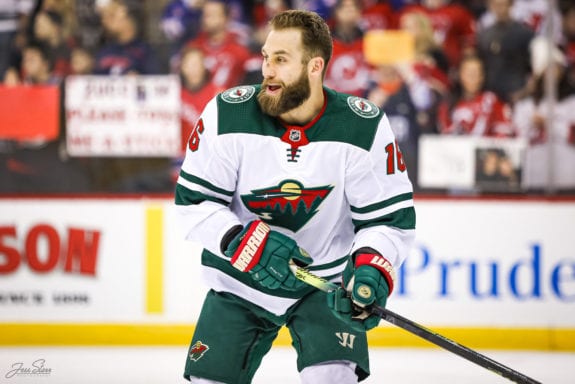
The Wild finished second to last in the Central Division with a record of 35-27-7 and with a total of 77 points. That .558 point percentage rewarded the Wild with a series against the Vancouver Canucks in the qualifying round after the 24-team playoff bracket was announced. Don’t forget, the Wild made a remarkable 3-1 comeback in the 2003 Western Conference Semifinals to defeat the Canucks.
The Wild Offensively Were Very Dependent On Shooting Talent
This might be shocking to hear, but the Wild are one of the top offensive teams even with the lack of high-end talent on the roster. First, the team is known for having elite players like Zach Parise and Ryan Suter, but not superstars like Nathan MacKinnon of the Colorado Avalanche or Artemi Panarin of the New York Rangers. Secondly, they have acquired players who were previously elite on other teams, but were on the decline while present in Minnesota, like Jason Pominville (aside from his first season), Dany Heatley, Thomas Vanek, and, currently, Mats Zuccarello.
Back to this season, the Wild were fifth in goals for per 60 (GF/60) among all NHL teams despite the lack of high-end talent aside from Fiala. However, to get back to earth, the team was 26th in expected goals for per 60 (xGF/60). There is a correlation between these two — the Wild were not strong at generating offense, but they were strong at scoring on the offensive chances that were created. To further explain this, the Wild were very dependent on their shooting ability. Their 9.43 shooting percentage ranked second in the NHL, only behind the Tampa Bay Lightning and just ahead of Alex Ovechkin’s Washington Capitals.
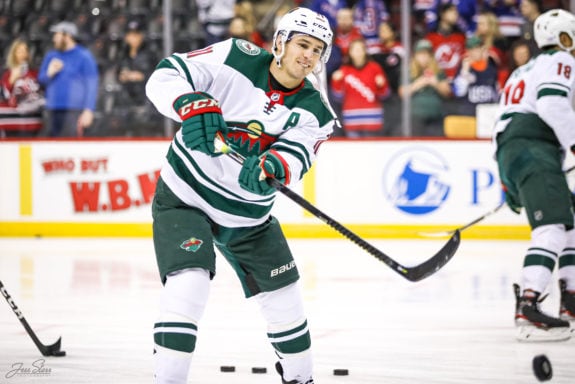
The Wild’s veterans had a good season with leading goalscorer Parise tallying 25 goals. Eric Staal had 19 goals, and Zuccarello had an underwhelming but still decent first season with the team with 15 goals and 37 points. Mikko Koivu was still strong defensively this season despite the lack of offensive production.
Related: Jets NHL Draft Days Ranked
The Wild’s youth really broke out this season as a whole and displayed the kind of talent the team’s future may hold. Ryan Donato had a career-high 14 goals despite a fourth-line role, limited minutes and even found himself watching the game from the press box. The GEEK line was fantastic and featured the Wild’s younger version of Koivu in Eriksson Ek, the physical presence of Greenway and Kunin’s great shot despite his poor defense.
Ryan Hartman, who may be the team’s most overlooked forward, had a great season analytically while being a tough, physical, fourth-line presence. Galchenyuk started to find his game once he got the change of scenery he needed and was moved to center. He really had a prominent role in the big win against the Vancouver Canucks on the fathers’ trip where he scored the game-tying and shootout-winning goal. Victor Rask was not bad this season analytically, but his lack of offensive production has landed him atop the list for potential buyout candidates in the offseason.
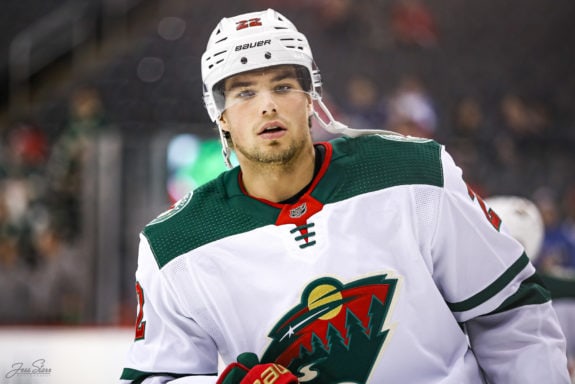
Fiala was the Wild’s MVP since the New Year. He finished the season with 23 goals and 54 points, which ranked second and first respectively on the team. He had a highlight-reel goal in, seemingly, every game. Former GM Fenton was very high on him and everyone knows why now.
The deployment of Fiala has changed under Evason as he has deployed Fiala in key situations and has given him more responsibility. Fiala, who just turned 24, is still developing, so these changes should jump-start and positively affect his development.
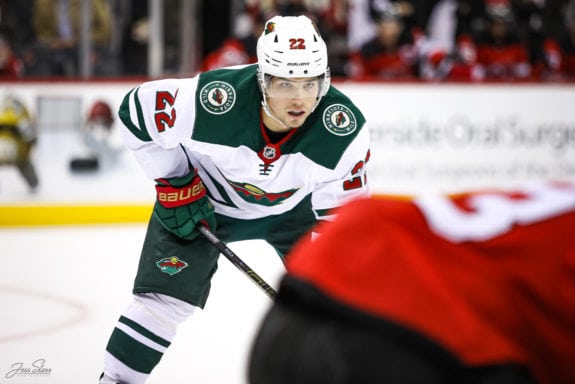
Marcus Foligno, the Wild’s best defensive forward this season, deserves to be in the mix for the Selke Trophy this season. He had his best season on the Wild since the trade that sent Jason Pominville, Marco Scandella and a fourth-round pick to Buffalo in exchange for Foligno, Tyler Ennis and a third-round pick. Foligno led the Wild in hits with 184 and had a career-high in points with 25.
The Wild Remain A Top Team Defensively
The Wild are very strong defensively overall, along with having one of the best defensive cores in the NHL. The team actually has a good group of defensive forwards including Foligno, Eriksson Ek, Greenway, Hartman, Koivu & Donato.
The Wild’s defensive core has been as good as any team’s throughout the past years, but with the emergence of Carson Soucy, it seals the deal.
Related: Wild’s Roster Moves Change Their Postseason Landscape
Suter finished the season notching 48 points, although he struggled defensively. Jared Spurgeon had his best analytical season in his career — quite fitting as he just signed a seven-year extension. He was phenomenal, recording 12 goals and 32 points while being a strong defensive player that inevitably saw him rank third on the Wild in xGA. He ranked 11th among all defenseman in the NHL with 2.5 WAR (wins above replacement), which takes into account all situations of the game.
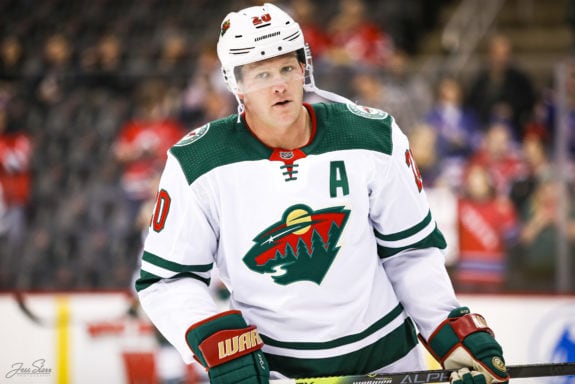
Jonas Brodin, one of the best, if not the best defensive defensemen in the NHL, was unbelievable while also having a career-high in terms of point production. He ranked second in even-strength defense (EVD), second in defense (DEF), first in expected goals against per 60 (xGA/60) and first in Corsi against per 60 (CA/60) among all NHL defensemen. Before his injury last season, Matt Dumba led all NHL defensemen in goals. This season, he struggled and it became evident that he was still feeling the repercussions of his season-ending pectoral injury.
The emergence of Soucy was a big surprise this season after an impressive training camp. He ranked sixth in GA/60 and 43rd in xGA/60 among all NHL defensemen, which is phenomenal for his rookie season with third-pair minutes. Brad Hunt had a good season as well and notched 8 goals and 19 points.
Wild’s Goaltending Defined Regular Season
With all that said, the harsh reality is that the Wild fell victim to below-average goaltending, to put it nicely. It was the hole in their game and it needs to be addressed. The team saw Alex Stalock take the No. 1 role, and even with a good stretch of games, he was not much better than Devan Dubnyk.
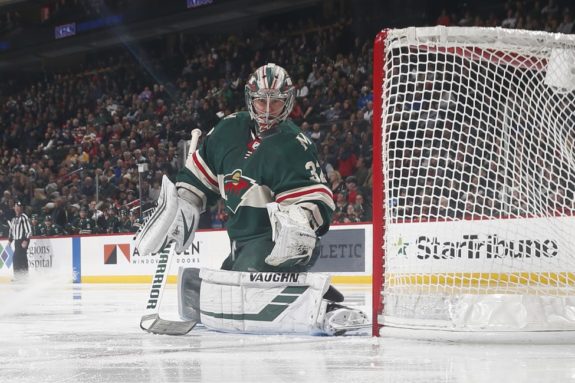
The Dubnyk-Stalock tandem was the worst in the NHL this season and has been on the decline the past couple of seasons. According to Evolving Hockey’s goals saved above expected (GSAx), which takes into account shot quality, Dubnyk and Stalock’s combined minus-44.13 GSAx was the worst in the NHL.
The tandem also had a combined minus-16.57 GSAA (goals saved above average). According to Natural Stat Trick, they also had a combined .768 high-danger save percentage (HDSV), which ranks towards the bottom of league. Dubnyk and Stalock also combined for a .900 save percentage.
If the club had even got average goaltending this season, they could have easily finished in the top three in the division. There is no doubt that goaltending kept the Wild from reaching their full potential. If the Wild want to beat the Canucks, they need average goaltending, at minimum.
Final Thoughts
The Wild have one of the best defensive cores in the NHL and overall one of the best defensive teams in the league. They outperform expectations offensively and are very good despite the lack of star power. If the team would have had even average goaltending, it would not be a stretch to say they could have finished as a top-10 team or at least close.